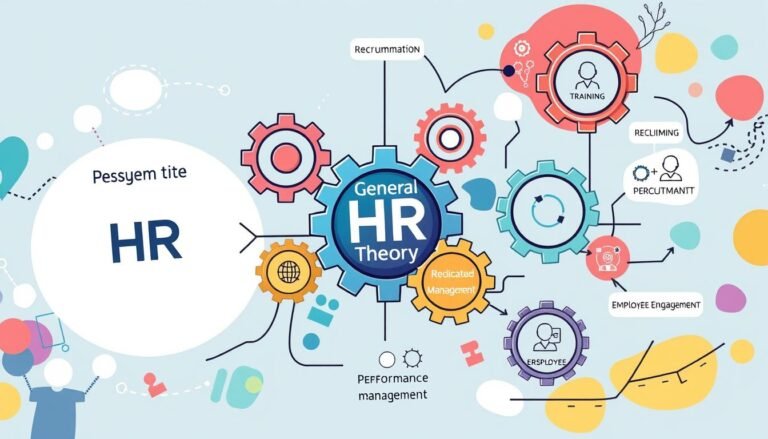How can Irish companies effectively manage remote and hybrid workforces?
The way we work has changed a lot because of the pandemic. More jobs now offer remote or hybrid work setups. This shift is happening fast, with 43% more ads for these types of jobs in the past year alone. People have found that working from home or having a mix of office and home days is great for getting work done. It also helps them balance their job with their personal life.
In Ireland, this change is especially noticeable. Over half of the jobs that let you work remotely or in a mix of places are found in Dublin and Cork. Plus, if you work in one of these big cities, you might earn 17% more than if you work in a smaller town. Many workers in Ireland now spend most of their time working from the comfort of their homes. This means it’s really important for companies to manage this change wisely. They need to create a work atmosphere that’s supportive and that includes everyone.
Companies in Ireland are focusing more on finding the right people for these new work setups. They understand that using new skills and tools, and being flexible about when and how people work, is key. These changes are not just about keeping up with others. They’re also about keeping the best workers happy and interested in staying with the company.
Offering training in digital skills is a must for businesses that want their remote teams to work well together. Good leadership for teams working from home is important, too. Companies that support remote work well will likely do better at keeping their teams happy and getting good work done. They’ll be seen as leaders in how work is changing.
By following these steps, Irish businesses can manage remote and mixed work well. They can make a work setting that’s both flexible and gets the job done. This will meet the needs of today’s workers.
Understanding the Shift to Remote and Hybrid Work
The pandemic changed how many work in Ireland, with remote and hybrid work models now key. This shift was brought about by the need for remote work during the pandemic. Many businesses turned to this flexible option.
The Impact of the Pandemic
The pandemic saw a big jump in job ads for remote or hybrid work, up by 43%. Now, one in three job ads is for these kinds of roles. This change affected sectors like IT, finance, and business the most, making up over half of these jobs.
Cities like Dublin and Cork are at the forefront, with 41% of their jobs offering remote work. This means more chances for job seekers and possibly better pay. City jobs typically pay 17% more than rural jobs.
Employee Expectations and Benefits
Employees now expect more flexibility since the way we work has changed. They look for roles that are remote or offer a mix. These jobs are more popular because they let people balance work and life better.
Hybrid work is on the rise, with over half the workforce involved. People love it because it cuts down on travel, which is good for the planet. Plus, it helps with work-life balance.
Hybrid work also makes employees happier, makes them want to stay with their company, and helps companies save money. With fewer people in the office, companies need less office space. They also use better tools to keep in touch, which makes them more flexible and ready for what’s next.
In Ireland, soon employees may have a right to request to work remotely. This is thanks to a new law, the Work-Life Balance and Miscellaneous Act. It shows everyone is recognizing the good things about remote and flexible work.
Remote Work Best Practices for Irish Companies
More and more companies in Ireland are seeing the value of effective remote work. They’re focused on boosting productivity and making employees happy. To do this, they set clear rules and ways to talk to each other. This makes everyone trust each other more and stay on track.
Using digital collaboration tools is key for managing remote teams well. Zoom Rooms, Zoom Team Chat, and Zoom Phone make working together easy, no matter where people are. Thanks to these tools, work can flow without any problems, keeping productivity high.
Over the last year, 43% more jobs have been advertised as offering remote or hybrid work. These jobs now make up a third of all job ads. Big cities like Dublin and Cork lead the way, offering over half of these jobs. They also tend to pay 17% more than jobs in the countryside.
“Employers who mandate full-time on-site work receive fewer applications than those offering remote or hybrid options,”
These findings come from the National Remote Work strategy. They show how people really want jobs that let them work from anywhere.
In Ireland, more co-working spaces are popping up in hub cities. This is great for remote workers. They get to work in a professional setting closer to their home. Plus, it’s important to teach employees how to use digital collaboration tools well. This keeps them linked to their teams and work goals, even from afar.
The Work Life Balance and Miscellaneous Provisions Act 2023 is also key. It gives all workers the right to ask for remote work. This law supports making virtual team management part of the economic future. It’s all about building a sustainable way for work to happen.
Hybrid Workplace Strategies
Hybrid workplace strategies mix the best of working from home and the office. By combining flexibility and productive teamwork, companies can unlock their workforce’s full potential.
Balancing Office and Remote Work
Finding the right mix of in-office and remote work is key. In Ireland, they aim for 20% of public sector workers to make remote work a regular part of the week. They are doing this by creating policies that support working from anywhere and by using advanced technologies for clear communication, like those from Kinly and Pexip.
In Ireland, many workers want to keep working from home after the pandemic. This includes 94% of them. Balancing when they work from the office and from home is becoming more and more important. To get this right, many companies are planning days for teams to meet in person. They are also organizing fun activities to keep everyone connected.
Ensuring Productivity and Collaboration
To keep productivity in hybrid environments high, it’s crucial to have policies that keep everyone connected. A study by Fórsa and NUIG’s Whitaker Institute noted that 67% of workers want to work remotely at least part of the time. This shows the importance of having flexible work rules.
Using the right tech tools can really make a difference. Platforms like Pexip make it easy for teams to work together no matter where they are. With more than half of workers in hybrid roles, and laws soon allowing anyone to ask for remote work in Ireland, the time is right for these changes. Besides saving money, these approaches make employees happier and more likely to stay.
Enhancing Employee Engagement in a Remote Setup
Boosting employee engagement in a remote setup is key for a motivated team. In Ireland, 25% of employees work from home. This shows a big change in how we work. A good remote work culture means checking in often, celebrating wins, and offering chances to grow. Making employees feel like they belong is crucial.
Starting with regular virtual meetings helps keep everyone connected. It gives a chance to talk about issues and share successes. Praising good work is vital. It lifts spirits and makes people feel valued. Opportunities for learning also keep the team skilled and ready.
Creating trust and giving people freedom boosts the remote working experience. When employees have trust, they feel more in control and happier in their jobs. But, companies also need to watch out for overwork and burnout. Nearly half feel they work too much and 1 in 5 is burnt out. Offering wellness support and setting clear work limits helps keep everyone healthy and happy at work.
The move to remote or hybrid jobs in Ireland continues to grow, with a 43% rise in such job posts over a year. This shows how valuable remote work is for both workers and employers. To succeed in this new world, companies must find better ways to engage their teams remotely.
Managing Virtual Teams Effectively
Leading virtual teams well means focusing on clear communication, trust, and goals. It’s vital to define roles and regularly meet. This helps keep the team connected and up to date.
Around 90% of Australian workers like remote work, with three-quarters preferring a mix. In India, over 80% find working from home flexible, most reporting they work better. Before Omicron, 83% of U.S. workers had experienced remote work. This shows we need strong management for virtual teams.
Training can make a big difference in managing virtual teams. The Managing Remote and Virtual Teams course is popular. It lasts for two days, offering up to 12 CPD hours. Nexus Human, a top training provider, offers this course. Big brands like Pfizer and Vistra, plus individual learners, have praised it. They highlight the expert instructors, especially in software.
It’s also key to tackle digital burnout and encourage work-life balance. These steps can make a virtual team a more supportive and productive place.
For those interested, there’s a discount with the code PENPAL5 for the Managing Remote and Virtual Teams course. This program covers leadership skills for remote work and managing virtual teams. It’s available in Dublin, London, or online.
“The program’s focus on managing virtual teams and remote leadership skills has been invaluable in maintaining team dynamics and ensuring our remote workforce remains productive and engaged,” remarked a satisfied participant.
By following these tips, virtual teams can not only survive but thrive in our changing work world.
Implementing Digital Collaboration Tools

In Ireland, companies are turning to digital tools for better teamwork and communication. This is because remote and hybrid work models are getting more popular. With the use of digital tools, workers can meet virtually, boosting productivity. This trend is not only in India but around the world, including Ireland.
Tools like Google Workspace, Trello, and Asana are key for team success and merge well with technology. They make it easy for teams to work together no matter where they are or what device they use. The use of these tools has grown from 42% to 66%, as shown by the Society for Human Resource Management (SHRM).
Remote work benefits both employees and their companies. It allows employees to earn similar salaries to big cities while saving companies money. By using digital tools, businesses can meet their employees’ changing needs, boost team spirit, and keep productivity levels high.
Theses tools are also vital for businesses aiming to do well in remote or hybrid setups. They provide ways for workers to meet and manage projects efficiently.
Additionally, keeping information secure is a top priority for these tools. In today’s world, protecting data is very important. For businesses, a strong focus on security means their employees can trust that their communication is private and secure.
Developing Robust Remote Workforce Policies
Making strong remote workforce policies is key for Irish companies looking into remote or partly remote work. These rules need to be clear and specific for each sector. This helps keep up productivity and the company’s culture. Since the government asks the public sector to do 20% of their work remote, flexibility and legal guidelines for remote work are growing.
The Civil Service Employee Engagement Survey 2020 showed that 75% of civil servants want to keep working from home. Another 62% like the idea of sometimes going to the office. This info led to the Blended Working Policy Framework. It aims to make working between home and office easier, improving people’s work-life balance. It includes clear rules, who is eligible, and help for everyone involved.
Some bosses worry about not seeing their remote employees enough. They think this could mess with how they check on work and who does the work. But, smart companies use these worries as a reason to build trust and have open talks. They help their teams focus on being part of a team and making sure everyone’s work matters. Plus, they train their leaders to be great at managing both office and remote workers. They also plan fun face-to-face get-togethers and ways to say “good job” that work for everyone.
By following these steps, Irish companies can make strong remote workforce policies. These will support not just the right to work flexibly but also follow the new laws about working remotely. Doing this means companies can stay in the game by creating a space where everyone can do their best work.
Flexible Work Arrangements: A Key to Retention
In today’s working world, flexible ways of working are very important for keeping employees. In Ireland, a new law lets parents and carers ask for flexible work and everyone else to work remotely. This shows how crucial it is to meet various work-life needs of today’s workforce.
Flexible work makes employees happier and more loyal. It also makes them work better. After Covid-19, many employers have made their rules more flexible to keep and attract good people. This is key for more women to work and to cut the pay gap between men and women.
About 60% of workers today can enjoy flexible work, which is becoming more common. In a tough job market, offering flexible jobs helps keep staff. The government sets rules to handle requests for flexible work well, making it easier for companies to be flexible.
If companies don’t allow flexible or remote work, they might be seen as discriminating. Following all the rules is important to avoid big fines. Around 40% of bosses want their staff in the office more. But finding the right balance is crucial.
Flexible work can help not just workers but also local communities by offering job opportunities. It lets companies hire talented people from anywhere. This makes it easier to keep good staff.
In the end, creating a work culture that supports work-life balance is a win for everyone. These changes are important for the future success of Irish businesses. Adapting to new ways of working is essential for staying strong in a changing world.
Conclusion
The way we work in Ireland is changing, moving towards more flexible and open ways. The pandemic played a big part by making remote and hybrid work more common. This change is being driven by the lasting effects of the pandemic.
Irish businesses are working hard to adapt using new digital tools and better policies. They focus on making employees feel valued and happy. This is key to managing a remote or hybrid workforce well.
Handling remote and hybrid teams well means finding a good balance. It means using digital tools, creating a friendly remote culture, and being flexible with work times. These efforts have boosted productivity and made work-life balance better.
Plus, working from home means less time spent commuting. It can also help the environment by cutting down on emissions. This supports big economic and environmental goals.
Improvements in managing remote and hybrid teams are benefiting more than just the companies. They help the overall economy grow and create better job chances, especially for those with special needs or who care for others. Using flexible work models can lead to a more sustainable, fair, and productive work future in Ireland.








